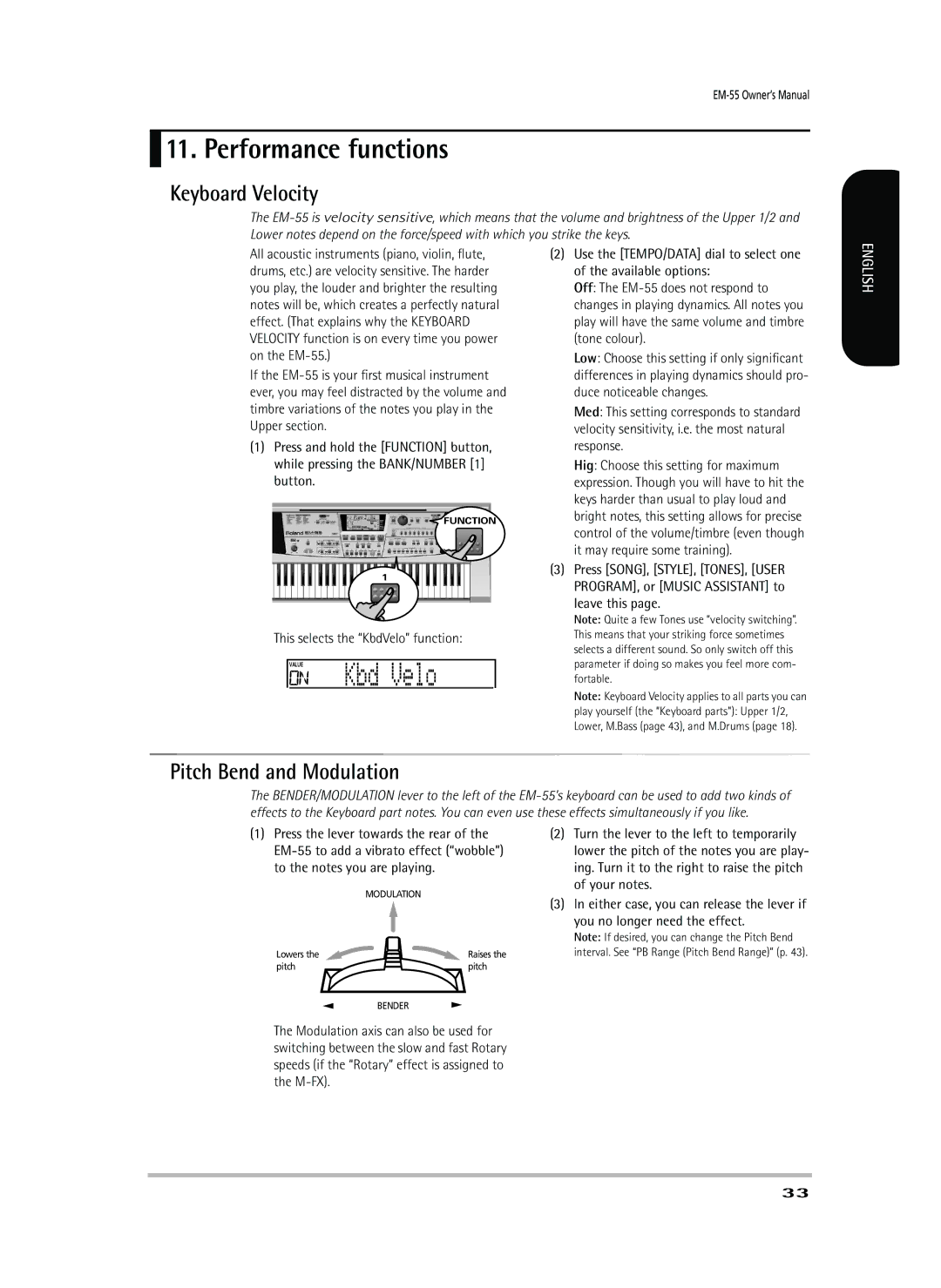
 11. Performance functions
11. Performance functions
Keyboard Velocity
The
All acoustic instruments (piano, violin, flute, drums, etc.) are velocity sensitive. The harder you play, the louder and brighter the resulting notes will be, which creates a perfectly natural effect. (That explains why the KEYBOARD VELOCITY function is on every time you power on the
If the
(1)Press and hold the [FUNCTION] button, while pressing the BANK/NUMBER [1] button.
FUNCTION
1
This selects the “KbdVelo” function:
VALUE




 Kbd Velo
Kbd Velo
(2)Use the [TEMPO/DATA] dial to select one of the available options:
Off: The
Low: Choose this setting if only significant differences in playing dynamics should pro- duce noticeable changes.
Med: This setting corresponds to standard velocity sensitivity, i.e. the most natural response.
Hig: Choose this setting for maximum expression. Though you will have to hit the keys harder than usual to play loud and bright notes, this setting allows for precise control of the volume/timbre (even though it may require some training).
(3)Press [SONG], [STYLE], [TONES], [USER PROGRAM], or [MUSIC ASSISTANT] to
leave this page.
Note: Quite a few Tones use “velocity switching”. This means that your striking force sometimes selects a different sound. So only switch off this parameter if doing so makes you feel more com- fortable.
Note: Keyboard Velocity applies to all parts you can
play yourself (the “Keyboard parts”): Upper 1/2, Lower, M.Bass (page 43), and M.Drums (page 18).
ENGLISH
Pitch Bend and Modulation
The BENDER/MODULATION lever to the left of the
(1)Press the lever towards the rear of the
| MODULATION |
Lowers the | Raises the |
pitch | pitch |
(2)Turn the lever to the left to temporarily lower the pitch of the notes you are play- ing. Turn it to the right to raise the pitch of your notes.
(3)In either case, you can release the lever if
you no longer need the effect.
Note: If desired, you can change the Pitch Bend interval. See “PB Range (Pitch Bend Range)” (p. 43).
BENDER
The Modulation axis can also be used for switching between the slow and fast Rotary speeds (if the “Rotary” effect is assigned to the
33
